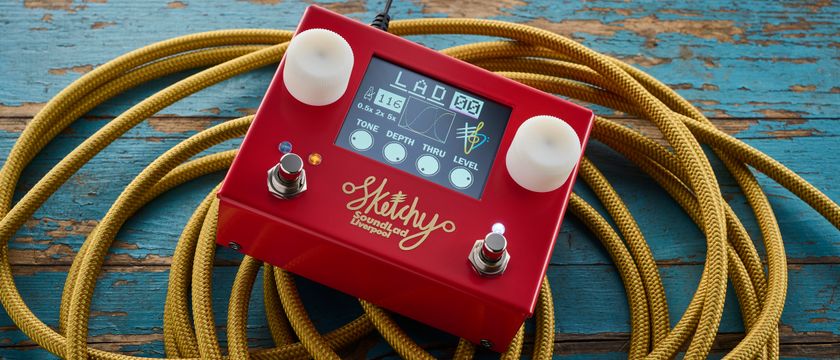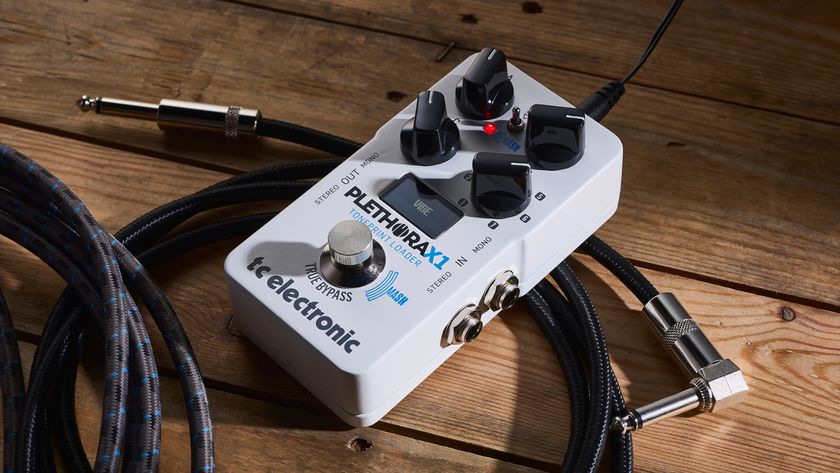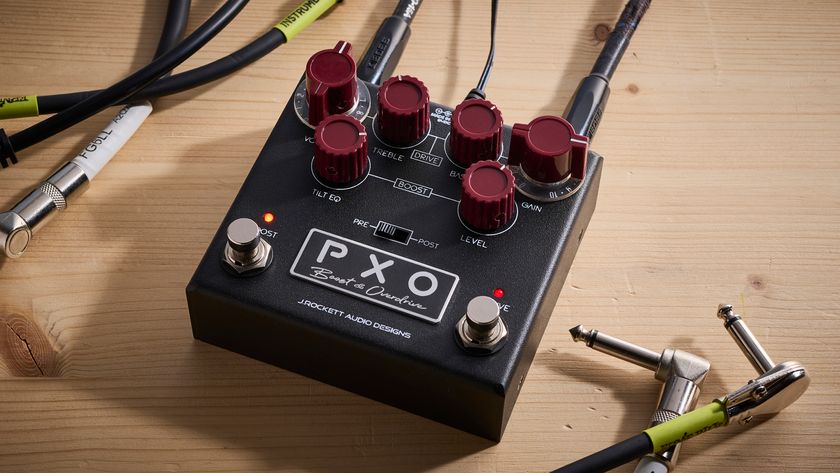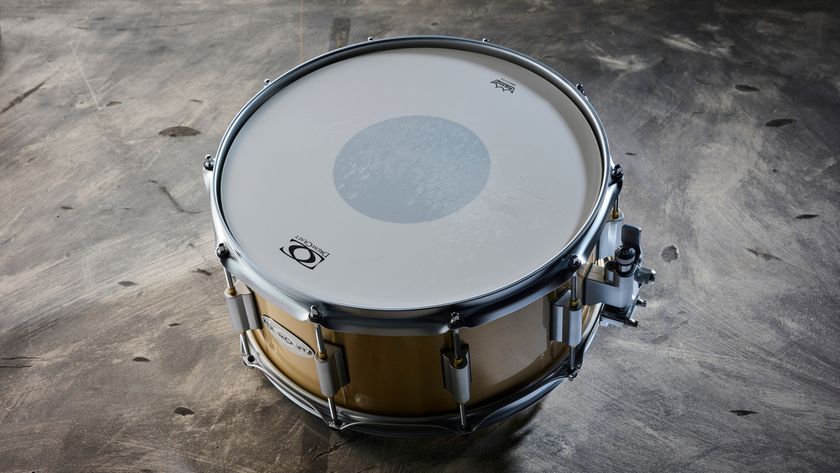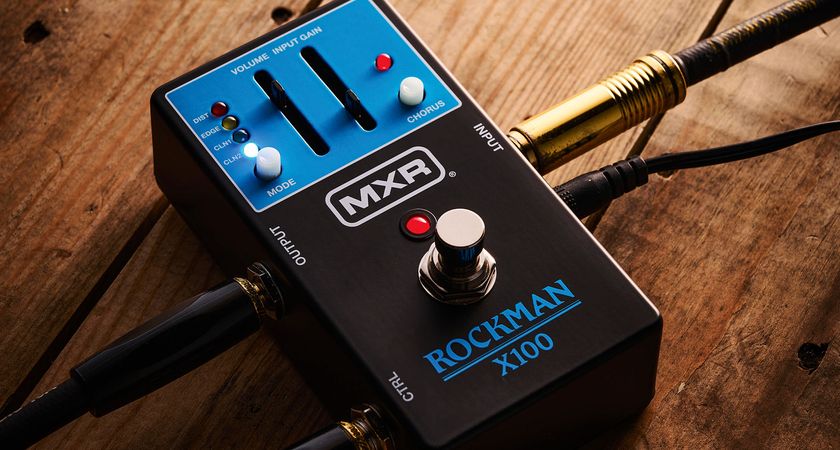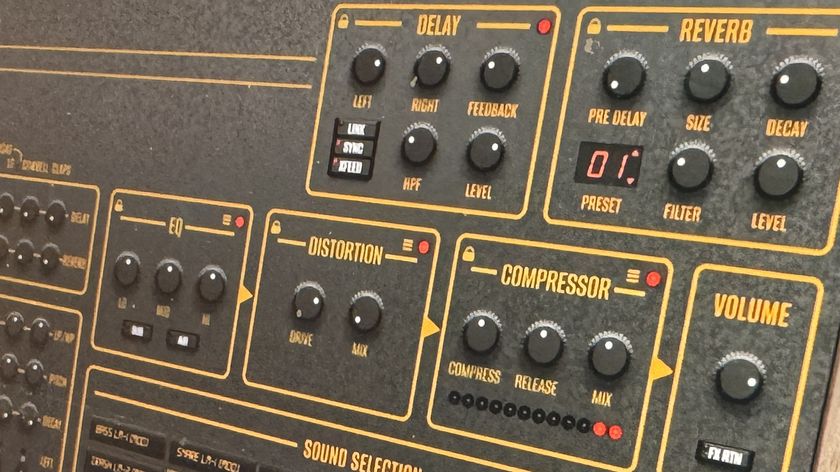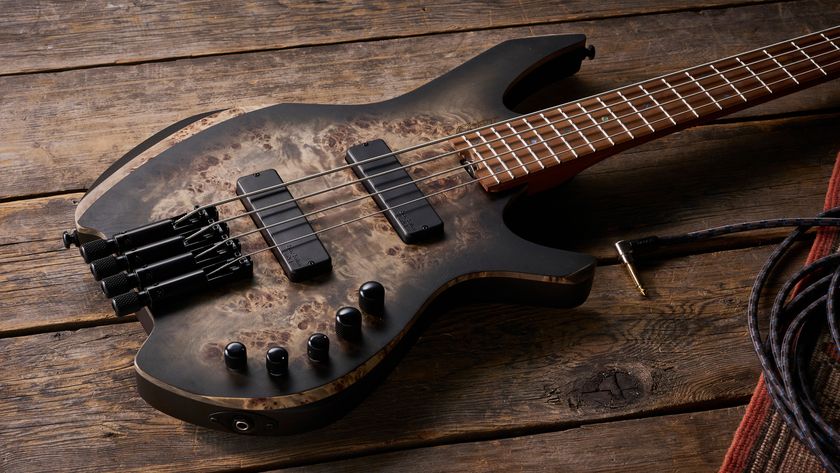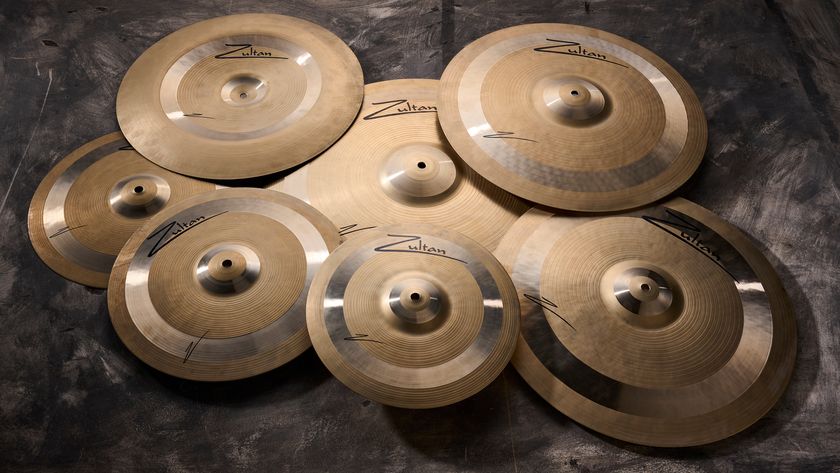MusicRadar Verdict
A pro-sounding and playing guitar with heritage features that are suitable for home, gigging and the studio.
Pros
- +
Outstanding playability; great volume and good dynamics.
Cons
- -
No built-in tuner in the preamp.
MusicRadar's got your back

Vintage Paul Brett VE8000PB-12

Vintage Paul Brett VE8000PB-12
Paul Brett's collection of vintage guitars is truly impressive. He owns more than 400 instruments, one of which is the solitary remaining Weymann 12-string parlour that provides the template for the two VE8000PB-12.
The instrument incorporates some refreshing construction principles rarely seen in modern guitars of this style, with the stated aim of creating acoustics that achieve a big sound from a small body.
The first feature of note is the headstock. Raked back at a 14° angle like the Weymann, this relatively steep relief is designed to increase the tension across the nut, which increases the energy and vibration transfer into the guitar.
Accurate intonation is vital at this scale length, and this is achieved thanks to a very cleanly cut saddle - always encouraging to see at this price point. The beautifully slotted mahogany headstock adds an extra touch of class to an already handsome instrument, while the gold-plated tuners round out the top end of the guitar, complementing the hue of the spruce top nicely.
The bridge is another unusual aspect of this guitar's construction. As it has been designed from the ground up as a 12-string, as opposed to a modified six-string model, it sports a reinforced bridge that can cope with the greatly increased load a 12-string has to bear.
This increased mass at the bridge also serves to enhance the resonance, meaning that the guitar projects with boldness. The bridge on the original Weymann incorporates a tailpiece that accommodates the octave strings, but it seems sensible that Brett has gone for a simpler design here.
Another wise decision is the choice of a 12th-fret body join, as this allows for improved energy transfer into the top simply because the neck is physically shorter and the vibrations have less distance to travel. This also means that the guitar is more receptive to detuning than most 12-strings - fretbuzz is also less of an issue because a good action is maintained.
That said, we would have liked Vintage to choose a Fishman preamp that featured an an onboard tuner: 12-strings can be a pain to tune.
Like its six-string sibling, the guitar comes with matching binding and Brett was insistent on a thin satin finish to allow maximum volume and presence from the top avoiding any dampening of the wood's movement. It also comes with a rugged Vintage Zero-Gravity hard-foam cases, which appear to offer a high level of protection.
Sounds
As mentioned, this guitar is deceptively loud and incredibly playable for a 12-string. Despite the lack of an onboard tuner, it's also a pleasure to tune, thanks to responsive machine heads and good stability. The guitar's laminate rosewood back and sides produce warmth and dynamism that's very easy on the ear when strumming chords or playing delicate arpeggiated phrases.
When plugged in, the Fishman Acoustic Matrix VT preamp and transducer provides tones that are full, detailed and well balanced. It's genuinely addictive to play and is easy to control via the internal volume and tone controls seated inside the guitar's soundhole.
Through a Trace TA200 combo, it has outstanding clarity and top end articulation, and the sprightly, punchy tonality means you soon forget you're playing a 12-string - it's effortless.
In short, this is a gift of a guitar for songwriters on the go and anyone who ever wished that those pre-war guitars had more playable neck profiles.

“He was like, ‘You’ve got it all wrong, man": Mumford & Sons reveal what Neil Young told them about the way they were approaching their live shows and album recordings

How to write a ‘sticky’ hit: Pure luck can put you in the charts, but sticking around to make the big bucks needs pure science

“We had a request from the studio guys: ‘Is it okay if this local church choir comes in to record for a day?’ And thank God we let them in!”: How Def Leppard created a rock anthem - with a little bit of divine intervention

